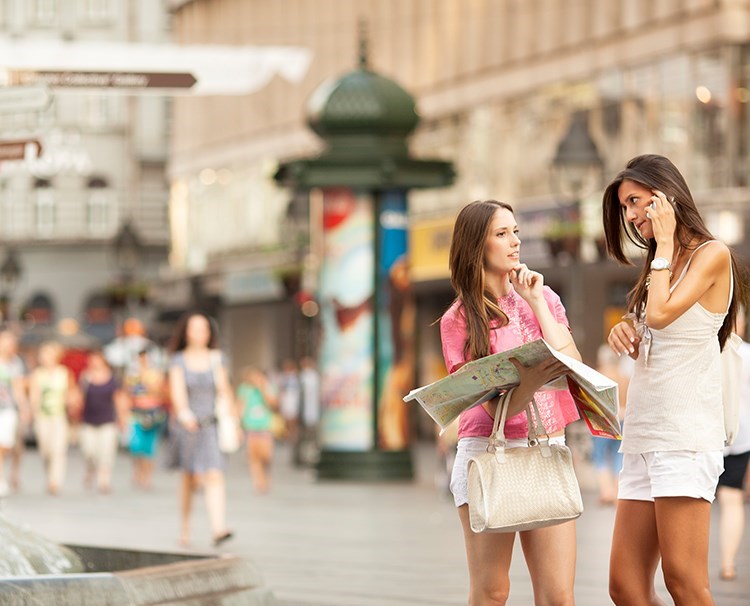And at its center, mired in both history and cultural significance, is Prince Michael Street (aka Knez Mihailova Street) -- a favorite pedestrian promenade with lively outdoor cafés, street performers, souvenir stands and a few shopping boutiques. Discover Belgrade, Serbia on our Gems of Southeast Europe and Grand Danube Cruise itineraries.
Prince Michael’s Promenade
One of the oldest streets in Belgrade, it has always been the central point of the city. During its Roman rule, the street followed the same grid layout it retains to this day. Gardens, drinking fountains and mosques were added during Ottoman occupation. But once the Serbs gained their independence in the 1800s, these fixtures disappeared in favor of a more European flair. Grand buildings in the Renaissance and Art Nouveau styles soon sprung up, built by Serbia’s most wealthy and influential families. Ebullient celebrations were also held here, such as Peter I riding down the thoroughfare during his coronation. In 1870, one year after popular Prince Mihailo Obrenović was assassinated, the street was named after him (there is also a statue of the prince in Belgrade’s Republic Square – not too far away).

The Joys of People-Watching
One of the most delightful and authentic ways to explore new places is to immerse yourself in local culture, customs and activities. While Prince Michael Street is dotted with such upscale stores as Cesare Paciotti, Swarovski and Diesel – people-watching is an absolute must. Sidewalk cafés are a perfect spot to enjoy Belgrade – as well as enjoy Serbian cuisine and wines and the stunning examples of surrounding architecture.
A Mélange of Styles
Years of various rule and ownership trading hands can be seen in the numerous styles represented along the popular promenade. The Belgrade City Library is a beautiful example of the Romantic style, which was originally built as a hotel in the mid-1800s. Renaissance style can be seen in the Nikola Spasić Endowment, a residential home built in 1889. And academism is on full display with the Serbian Academy of Science, built in 1923-1924. The block of urban homes at 46, 48, and 50 Prince Michael Street – all built in 1870 – are one of the best examples of traditional “Balkan” architecture, a transitional style from romanticism to renaissance. In 1979, the street was included in the list of Spatial Cultural-Historical Units of Great Importance and so is protected by the Republic of Serbia.
During the years of Communist rule, the family homes were taken away by the state. These former homes, now in the cultural and commercial center of the city, are often decorated with colorful flowers blooming during the summer months.
Stroll through the hustle and bustle of Prince Michael Street in Serbia during our Gems of Southeast Europe and Grand Danube Cruise itineraries.